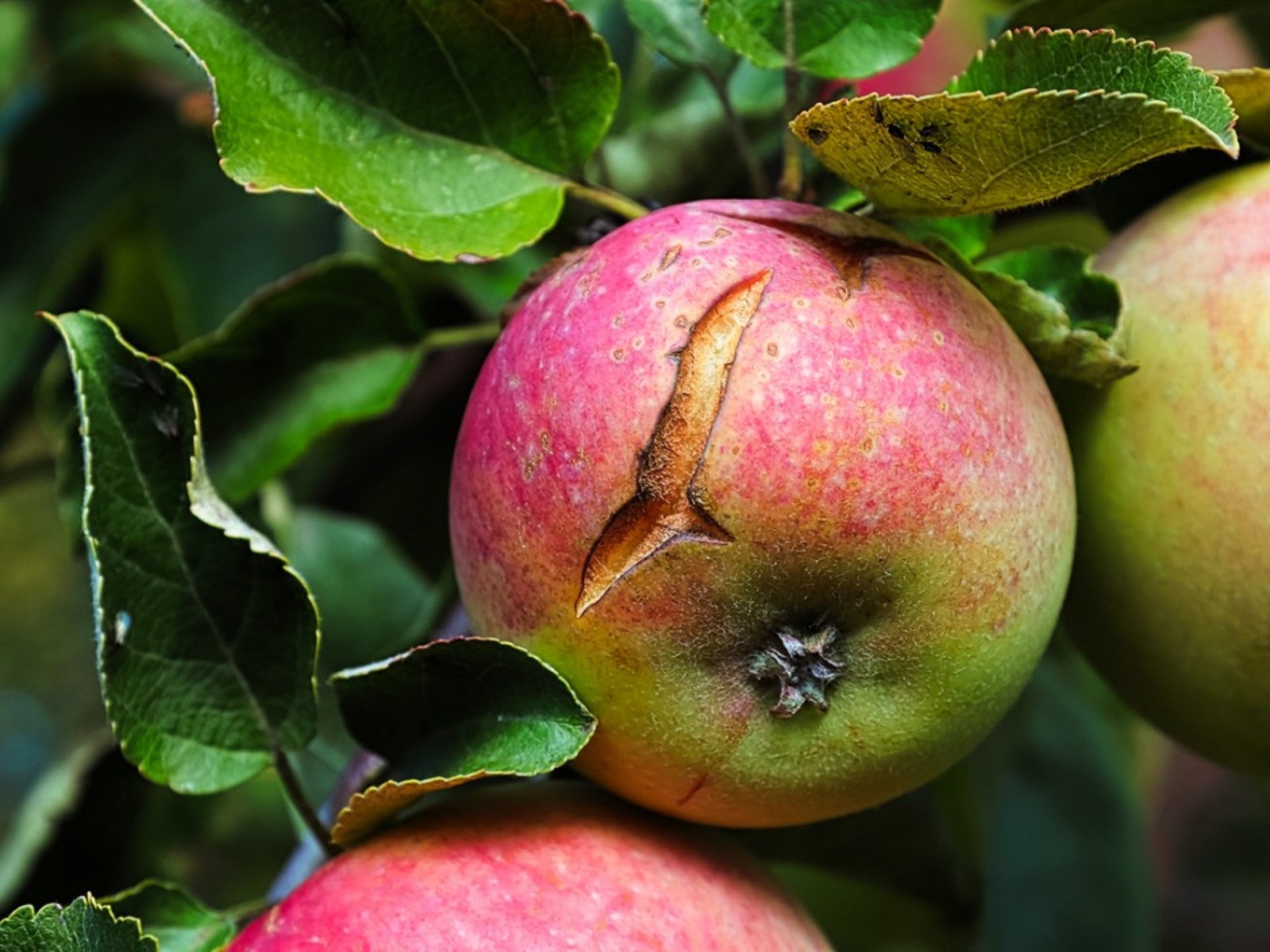How To Diagnose And Prevent Splitting Fruit


Summer rain is good for the earth’s current drought conditions, but it may not contribute to pretty fruit. Have you ever wondered about apple fruit cracking or asked “Why are my cherry tomatoes splitting? The answer is very likely too much rain. Read on for more information.
Why Does Fruit Split on Trees?
Walking out in the home orchard and noticing that young fruit is cracking never makes a gardener happy. But it doesn’t mean you did anything wrong. Fruit cracking is most often a physiological response to an erratic water supply. It happens most often in July but can continue through harvest.
Each fruit has a set number of cells that expand to retain water, both water that falls on the fruit and water uplifted through the root system. If there are excessive rains and few dry periods, the cell walls stretch beyond the breaking point. Exactly when that breaking point arrives depends on the thickness of the skin of the species or cultivar.
Why Are My Cherry Tomatoes Splitting?
This same issue arises in vegetable crops like tomatoes. Cracking in tomato fruit is due to periods of too much water. As summer temperatures rise, extreme rainfall or excess irrigation can result in radial cracking in tomato fruit. Their fragile skins just expand too fast.
You can also find concentric cracking in tomatoes, usually just before they mature. These cracks run all the way around the fruit. The cause of this is also cycles of too much water followed by too little water or high and low temperatures. Providing even moisture all during the growing period will prevent this.
Preventing Splitting Fruit
So if your fruit is cracking because of rain, rather than excess watering, is there anything you can do? There isn’t much for home gardeners to do.
Commercial producers with big operations use intensive management to limit the problem in times of heavy rain. This can mean using orchard covers or spraying the fruit with hydrophobic coatings. It might also mean drying the fruits with airblast sprayers or even helicopters, but this is too expensive and complex for the backyard orchard.
Sign up for the Gardening Know How newsletter today and receive a free copy of our e-book "How to Grow Delicious Tomatoes".

Teo Spengler is a master gardener and a docent at the San Francisco Botanical Garden, where she hosts public tours. She has studied horticulture and written about nature, trees, plants, and gardening for more than two decades, following a career as an attorney and legal writer. Her extended family includes some 30 houseplants and hundreds of outdoor plants, including 250 trees, which are her main passion. Spengler currently splits her life between San Francisco and the French Basque Country, though she was raised in Alaska, giving her experience of gardening in a range of climates.